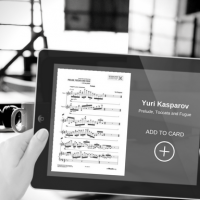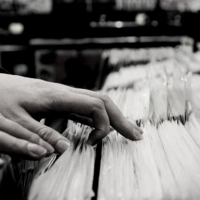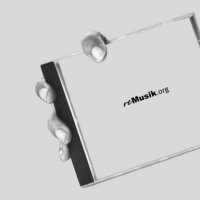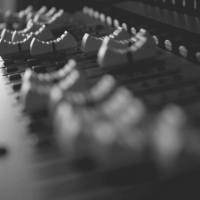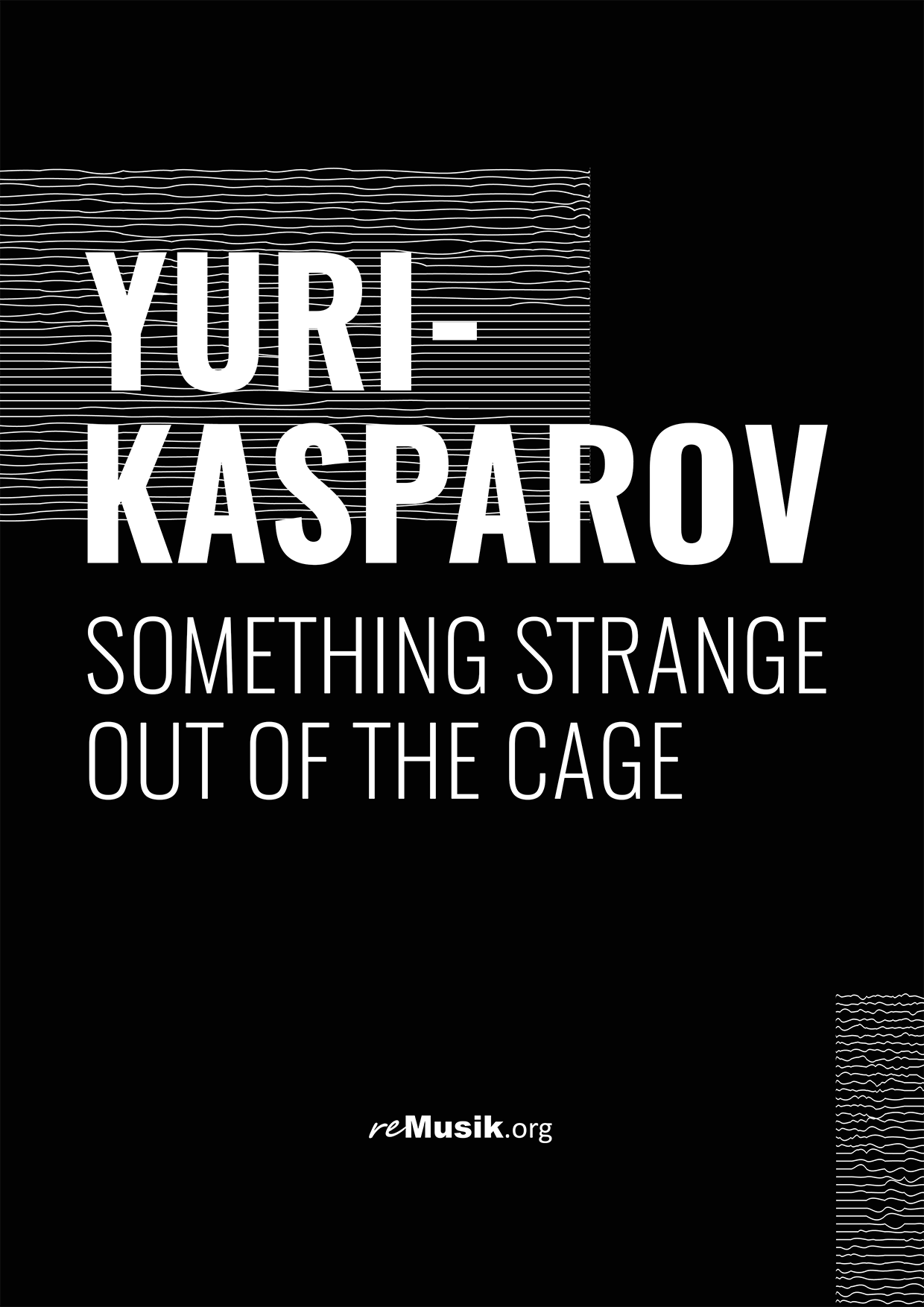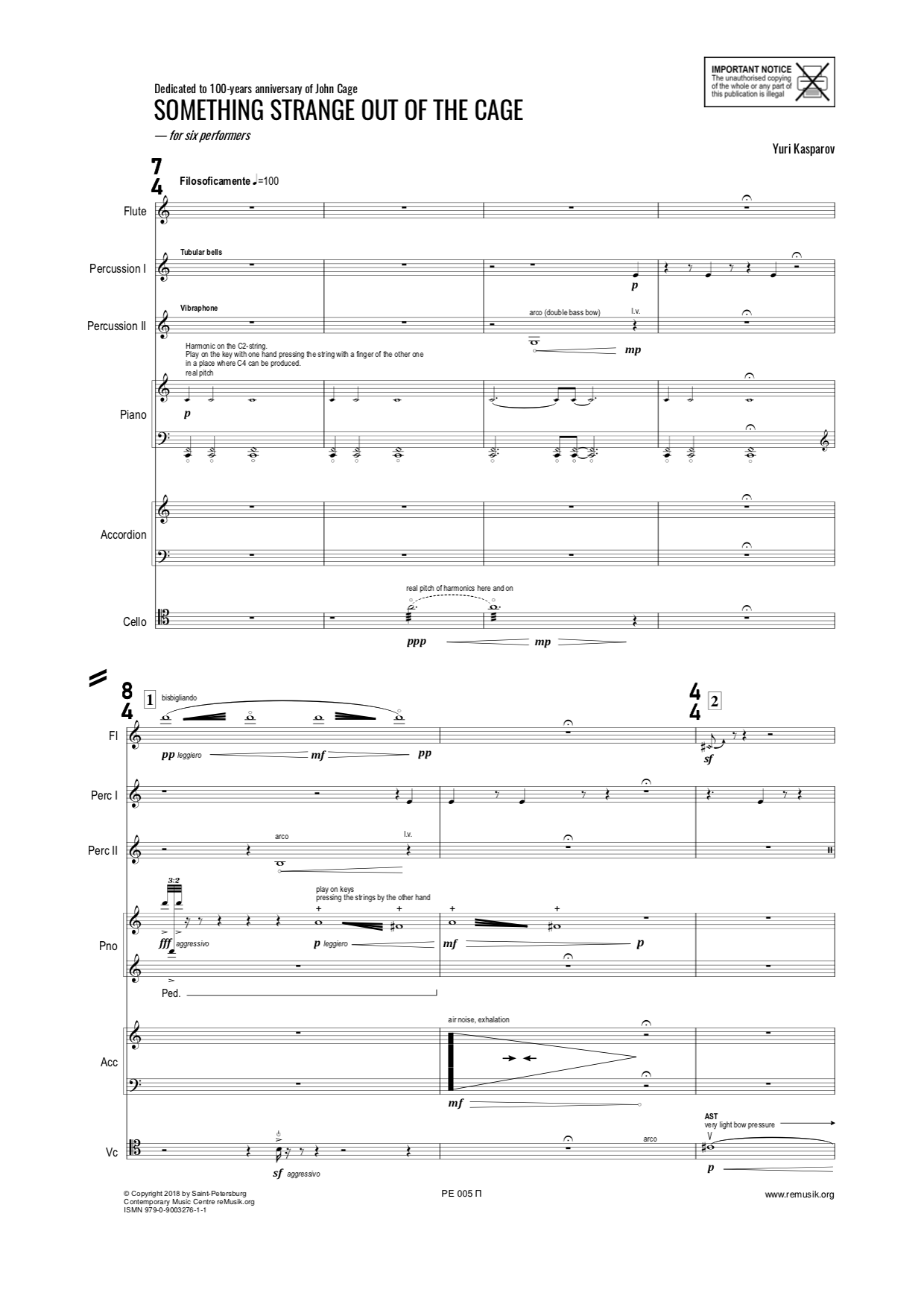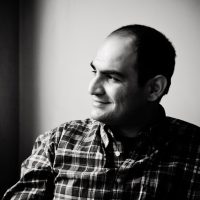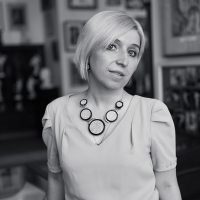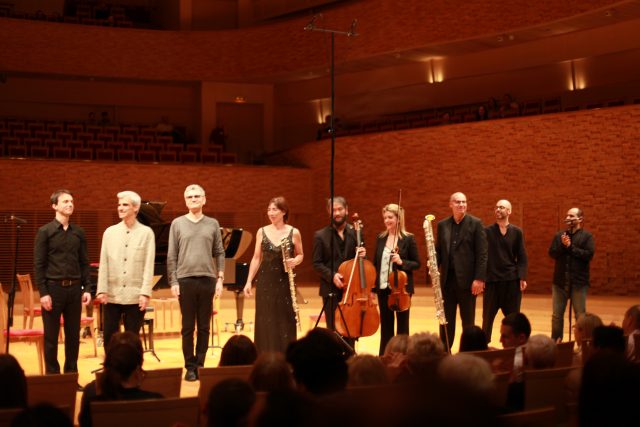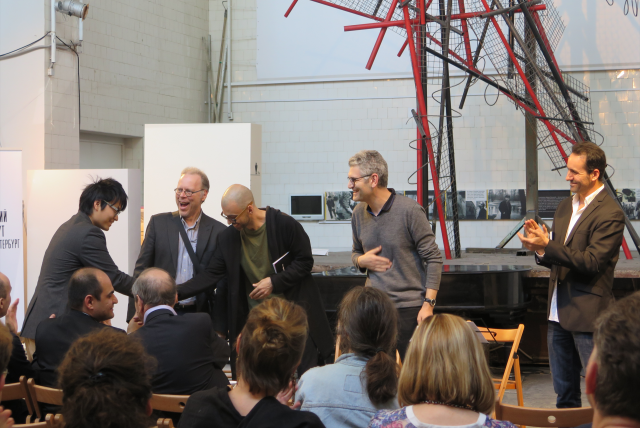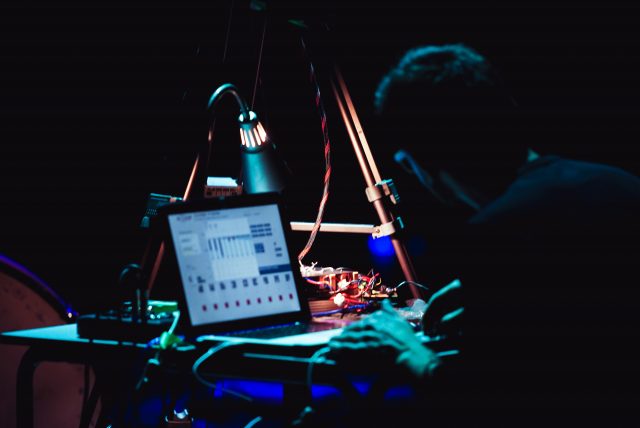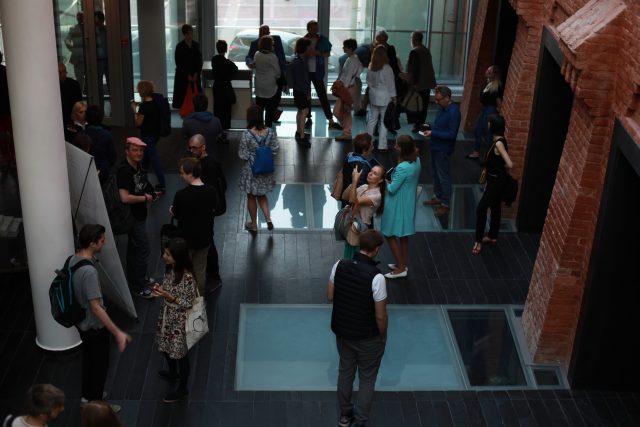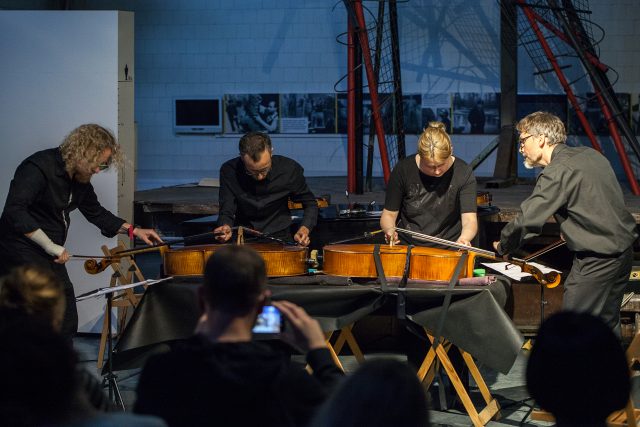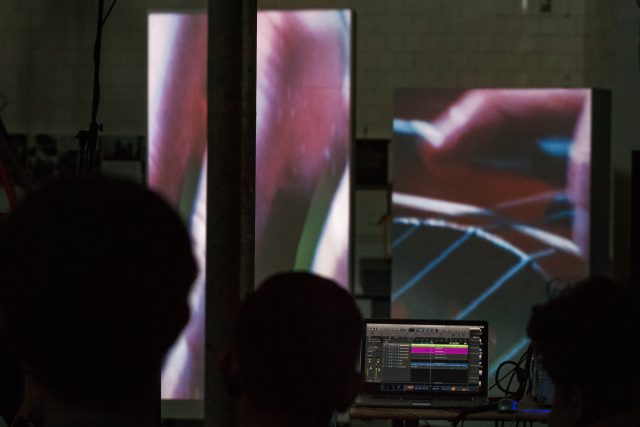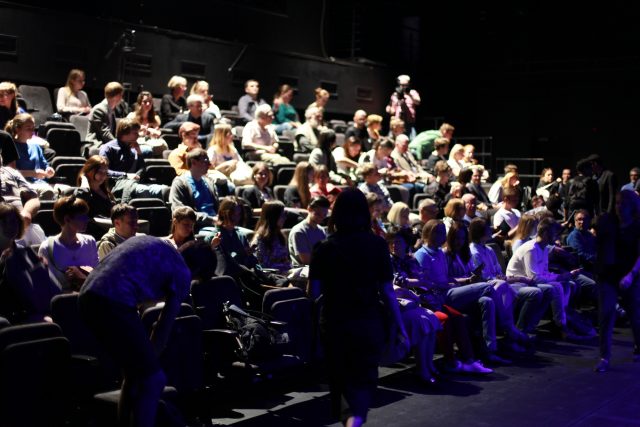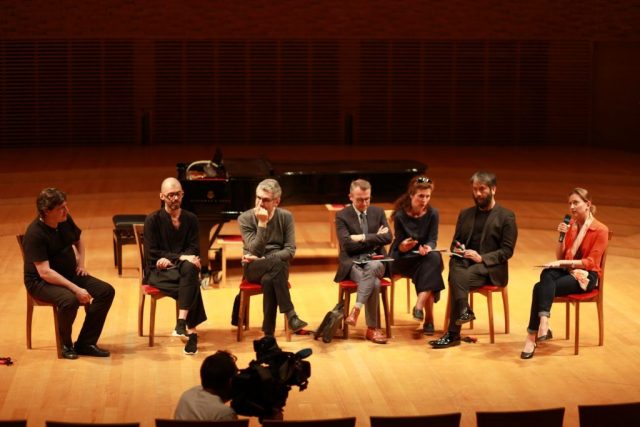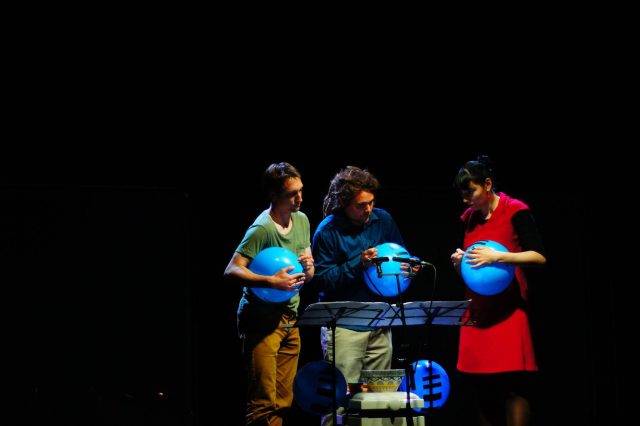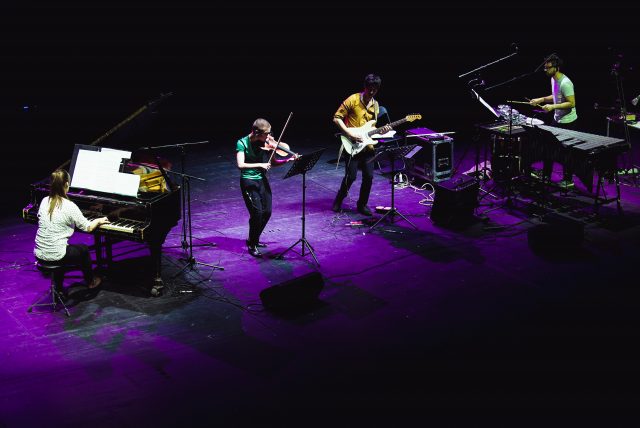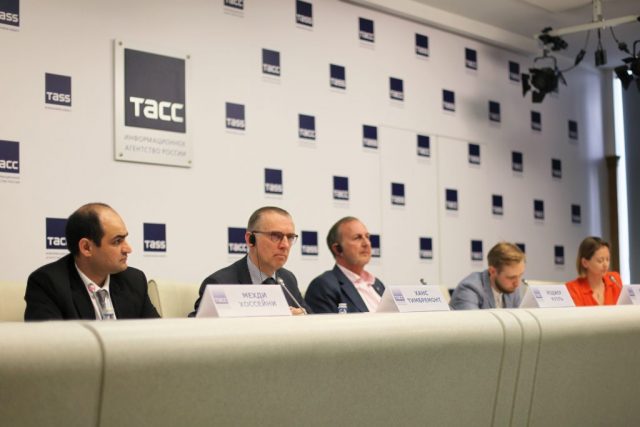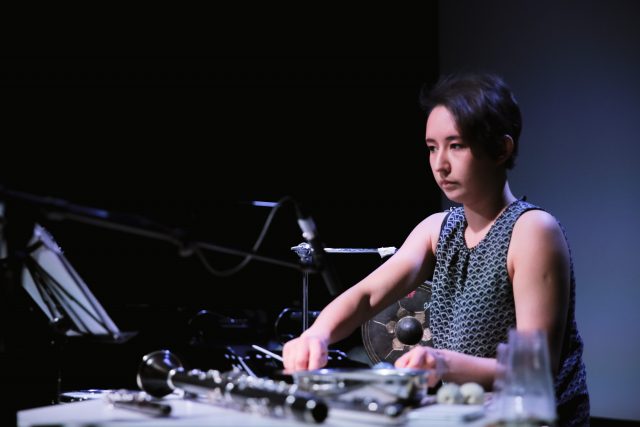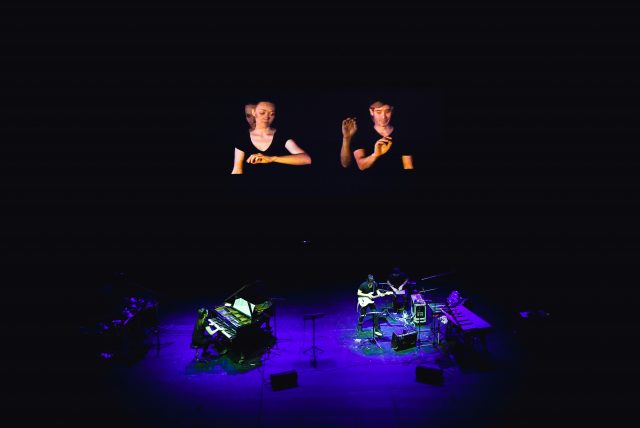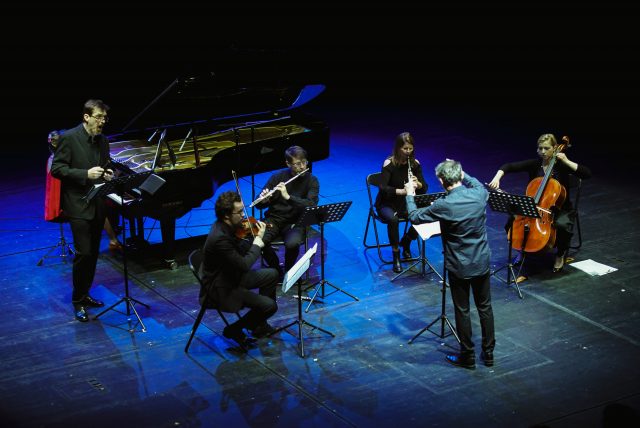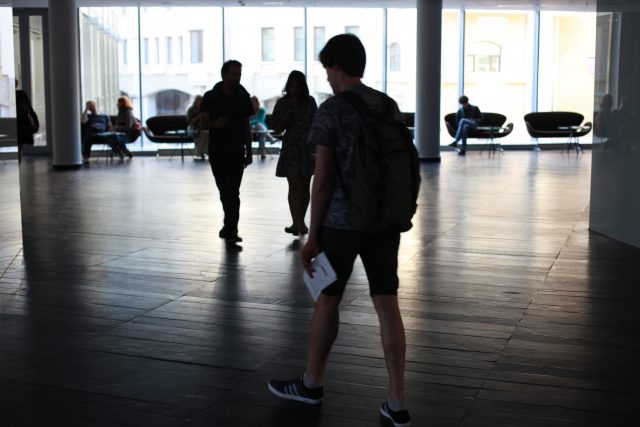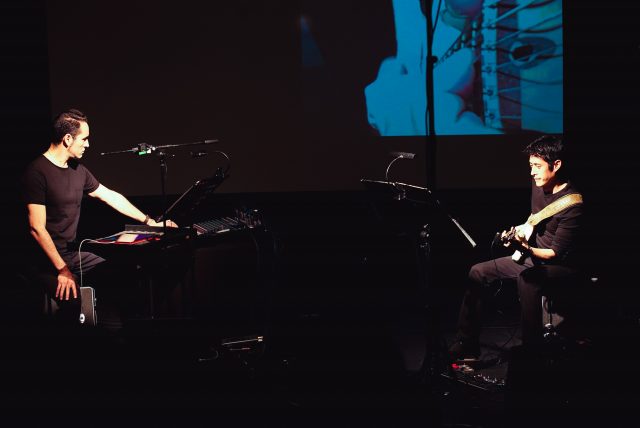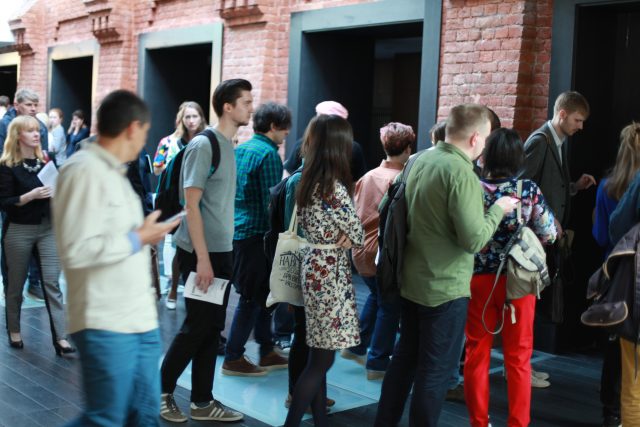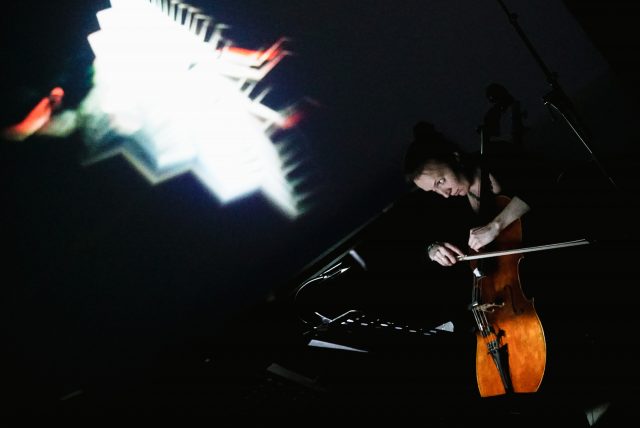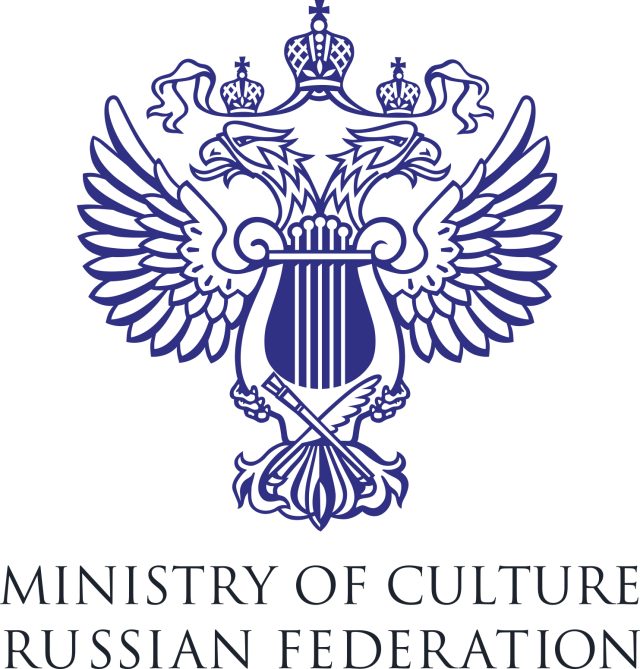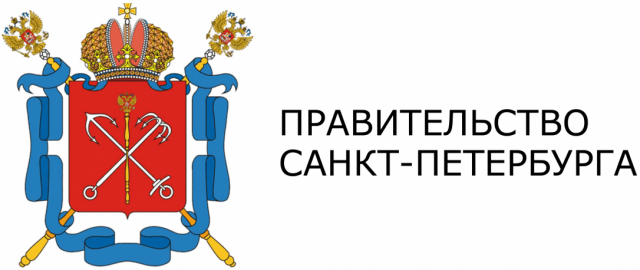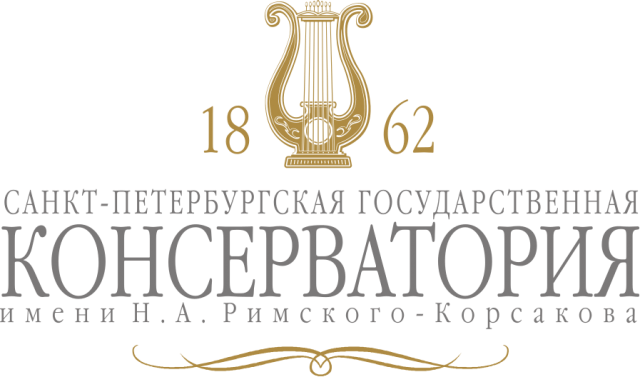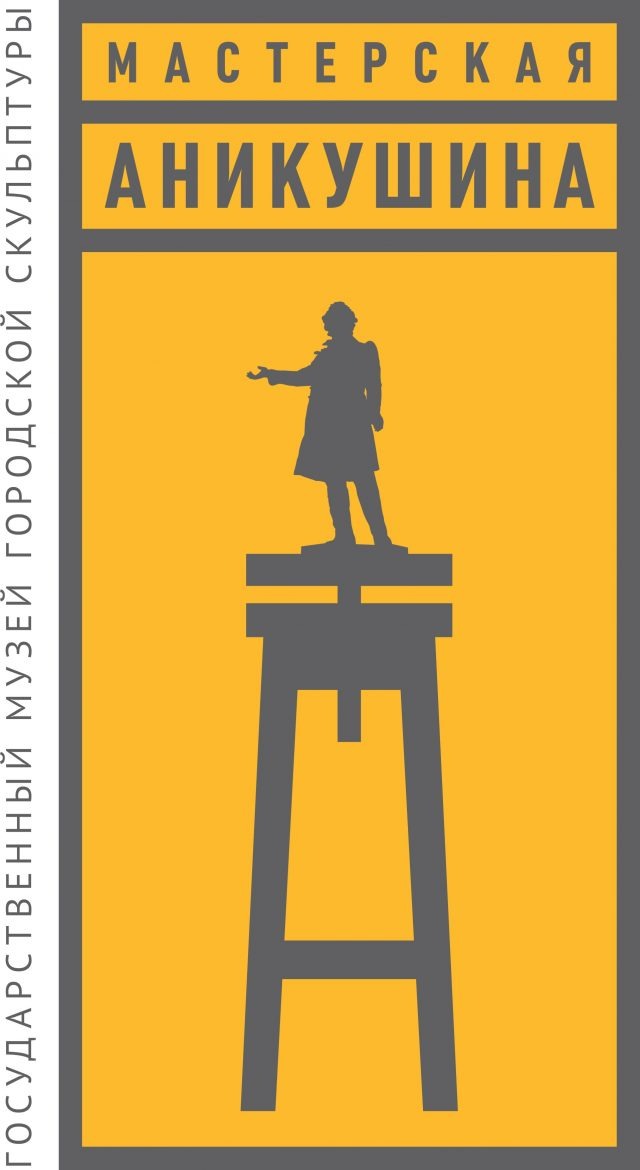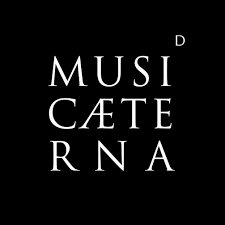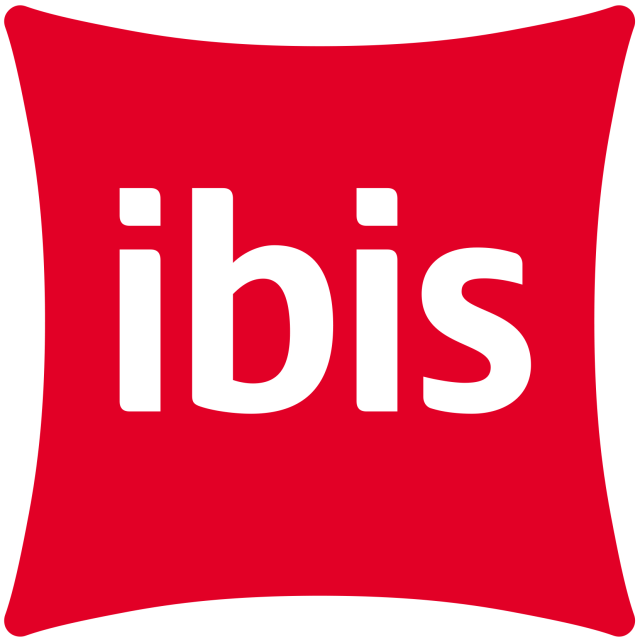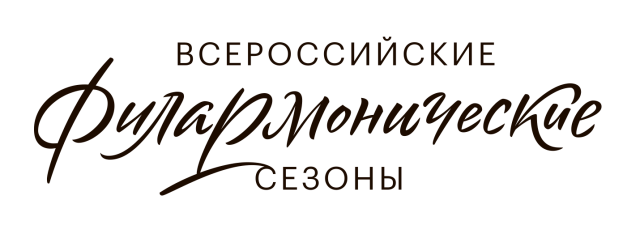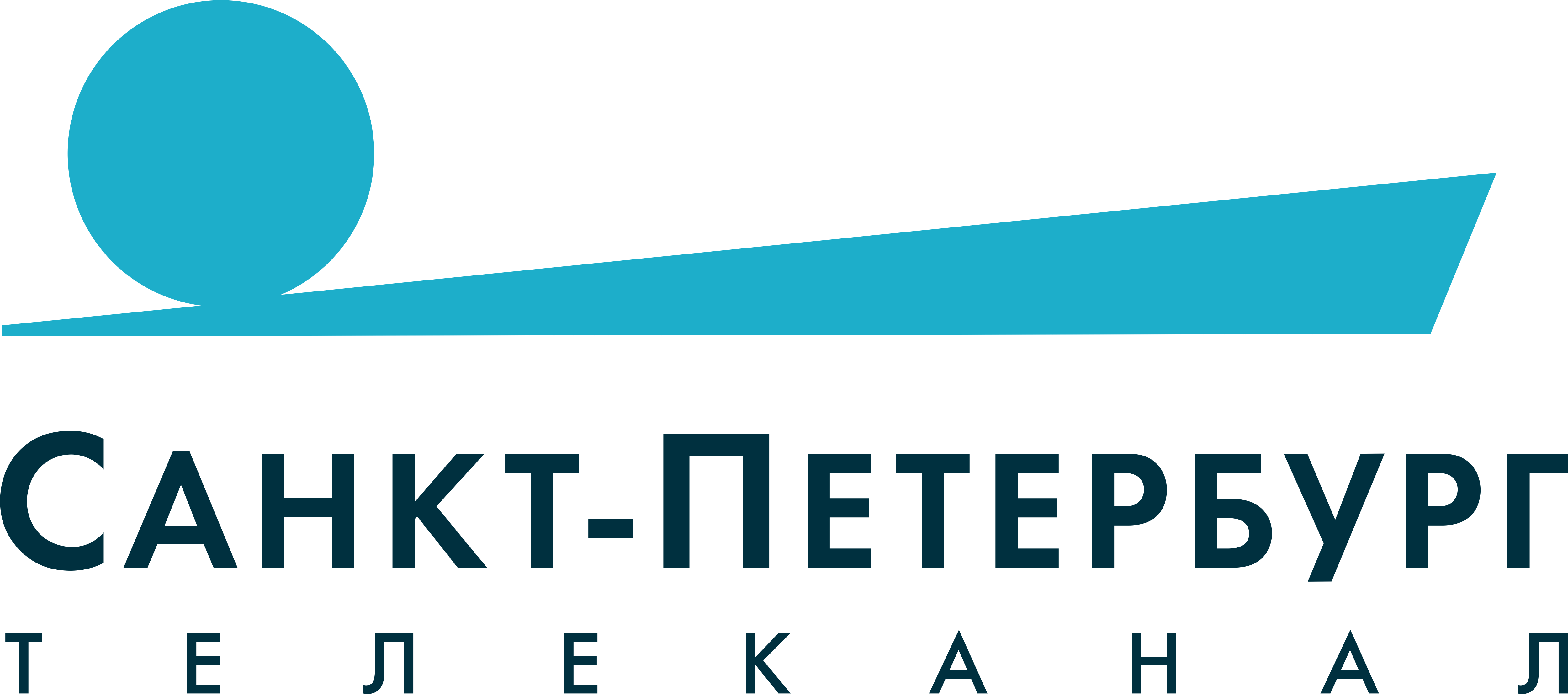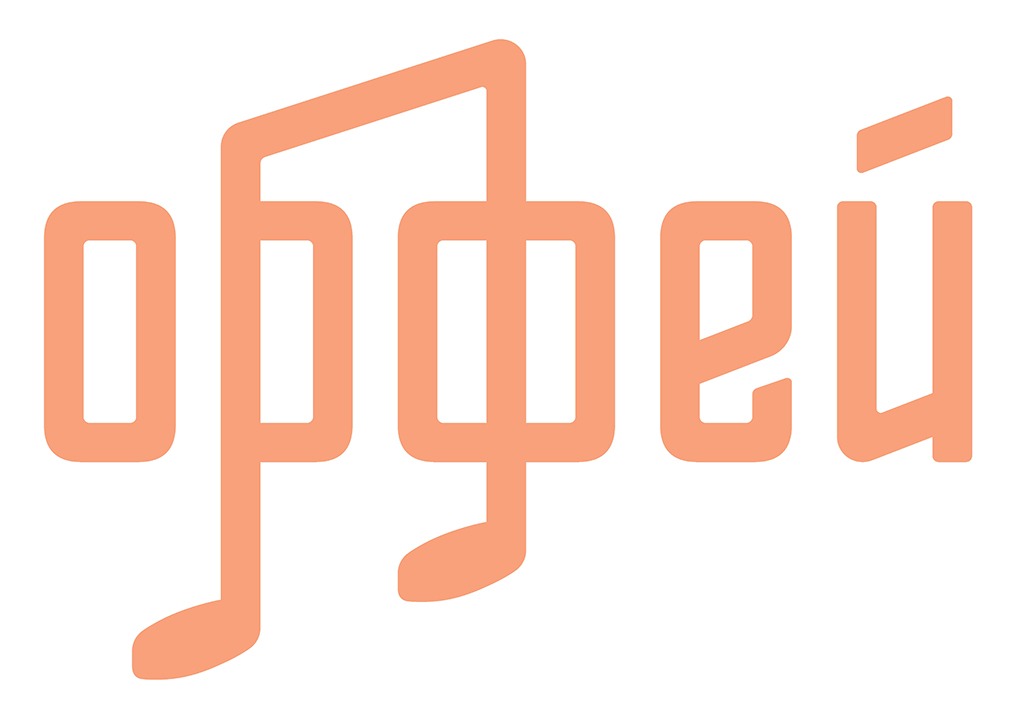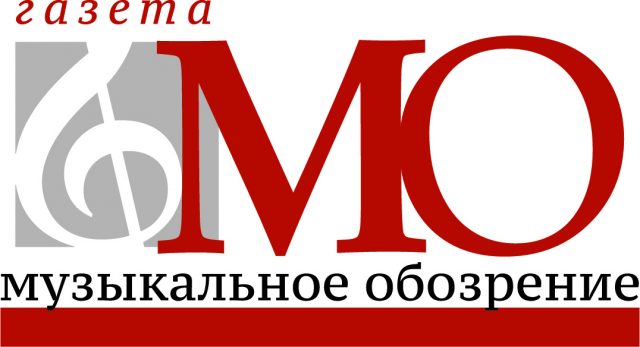ABOUT
The Saint Petersburg Contemporary Music Center reMusik.org is one of the unique cultural institutions worldwide established by composer Mehdi Hosseini in April 2011 in the Northern Capital of Russia. The Center, which has received funding from the Ministry of Culture of the Russian Federation, the Government of St. Petersburg, the Institut français, the Consulate General of Germany, the Embassy of Switzerland in Russia, and the Swiss Arts Council Pro Helvetia among others, is dedicated to building and educating a national and international community of composers, musicians, musicologists, and members of the public interested in learning more about contemporary music in Russia and new music as a whole. Additionally, its mission includes the support of composers and ensembles, music publishing, an academic research center, an online journal, and internet sites as well as the financial support of projects related to the sphere of new music in St. Petersburg, Russia.
One of the main goals of the Center is to be a source of research and development for new music. reMusik.org is a community of world-leading artists and scholars who bring innovative and interdisciplinary perspectives to research in composition, performance, sonic arts and multimedia, music technology, improvisation, analysis, and new music studies.
The idea of creating a centre was originally connected with a number of goals that reMusik.org is now trying to accomplish. After the Perestroika and USSR collapse there were only a few festivals and organizations supporting contemporary music remaining. One of the most important reasons for their degradation was lack of funding, which remains a problem until now. Another important issue has been, and remains until now, the problem of managing communications — more precisely, the absence of an establishment that would bring all the available information together into a systematic whole.
The annual St. Petersburg International New Music Festival is among the main project through which reMusik.org pursue its mission. The festival offers various musical concepts that facilitate the learning and understanding of a new, unique musical language of numerous dialects created by late 20th century and 21st century composers.
In a short span of time, the festival has achieved notable success exemplified by a large audience presence, the presentation of over 100 world premieres, the continued participation of leading European and American performing ensembles, and the implementation of important workshops, courses and master classes. The festival held in distinguished venues around the city, including the Mariinsky Theatre Concert Hall, St. Petersburg State Philharmonic, the New Stage of Alexandrinsky Theatre, Erarta Museum of Contemporary Art, and the N. A. Rimsky-Korsakov Saint Petersburg State Conservatory.
To make new music evaluated and understood, it is necessary to bring together various cultural aspects that take the audience into the zone of hearing, where they concentrate on their own thoughts and internal research. In this sense, reMusik.org attracts Internationally-renowned performers of new music to present premieres of works by different generations of composers, who are in constant search for unique ideas, and to show the features of their musical dialects as fully as possible. Great attention has also been paid to ensemble compositions specializing in contemporary music – every year since then, it is possible to hear both young emerging groups and leaders of the European scene as the Ensemble intercontemporain, Talea Ensemble, Quatuor Diotima, Namascae Lemanic Modern Ensemble, proton bern, Nadar, Linea, Mosaik, 2e2m, among others.
The reMusik.org acts as a crossroads of new musical paths that have emerged in the past few years, where the diverse world views of new music creators can intersect. The Center encourages dialogue between the Russian public and contemporary music around the world, while being able to experience a high quality musical events. This platform is becoming a live exploration of the experiment “here and now.” It doesn’t answer questions of contemporary music, but instead asks them, collecting the most interesting and experimental scenes of Europe and Russia. This in turn attracts new listeners, who will already be able to ask the questions posed by the music, and may even attempt to answer them.
In alphabetical order of last name:
Anatoly Korolyov
Composer, Professor of the N. A. Rimsky-Korsakov Saint Petersburg State Conservatory, Artistic Director of the Studio of Music and Computer Technologies, Honored Artist of Russia.
Svetlana Lavrova
Composer, Vice-Rector for Research and Development of the Vaganova Academy of Russian Ballet.
Alexander Radvilovich
Composer, Professor of the N. A. Rimsky-Korsakov Saint Petersburg State Conservatory, Artistic Director of the International Festival of New Music “Sound Ways”.
Sergei Slonimsky (1932 — 2020)
Composer, Professor of the N. A. Rimsky-Korsakov Saint Petersburg State Conservatory, People’s Artist of the RSFSR, Laureate of State Prizes (1983, 2002), Prizes of the St. Petersburg Government (1996), Holder of the Order of Merit of the Republic of Poland.
Vladimir Tarnopolsky
Composer, Professor, Head of the Department of Contemporary Music at the Tchaikovsky Moscow State Conservatory, Artistic Director of the International Festival Moscow Forum; Artistic Director of the Center for Contemporary Music at the Moscow Conservatory, Laureate of the D. Shostakovich Prize (Russia) and P. Hindemith (Germany), Member of the Saxon Academy of Arts.
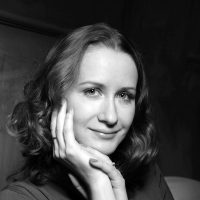
Lidia Ader
Project Director
Musicologist, Senior Researcher at the N. Rimsky-Korsakov Memorial Apartment-Museum
Artistic Director at the Center for New Technology in the arts “Art-parkING”
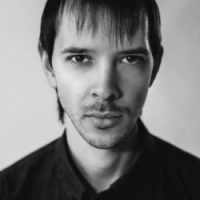
Alexander Khubeev
Education Program Director
Composer, Artistic director of the International Academy of Young Composers in Tchaikovsky City
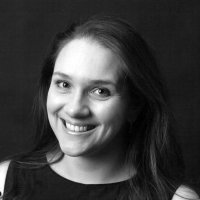
Ekaterina Zabayrachnaya
Project Manager
Musician
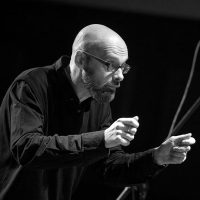
Dmitry Shubin
Curator of Improvised Music Projects
Pianist, Conductor, Art Director of the St. Petersburg Sound Museum, Curator of the Epicentroom International Festival
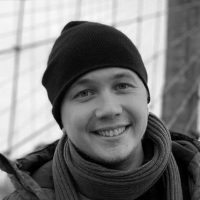
Roman Parkhomenko
OpenCalls Coordinator
Composer
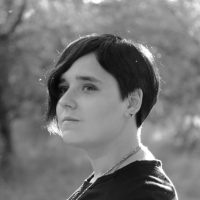
Diana Aksinenko
Editor
Music Critic
FIELD ACTIVITIES
CONTEMPORARY CLASSICAL MUSIC
New Music is an extension of the
contemporary classical music, and it represents the cutting and creative edge of classical music tradition. Combining the academic achievements of the 20th century and the discovery of the avant-garde music, it was influenced by experimental, jazz and popular styles, which led to a blurring of the boundaries between genres and styles.
ELECTROACOUSTIC MUSIC
Term which designates a musical orientation based on the use of electroacoustic devices for the conception, production, presentation, storage and/or cognition of works. Electroacoustics uses sound sources as diverse as natural sounds (which can be picked up by microphone), analog electronics (produced by equipment such as synthesizers) and digital (generated or processed by digital means). These sources may subsequently be processed and organized by electroacoustic techniques or by digital means before, in many cases, being stored on or presented by an electromagnetic medium.
COMPUTER MUSIC
Computer music is the application of computing technology in music composition, to help human composers create new music or to have computers independently create music, such as with algorithmic composition programs. It includes the theory and application of new and existing computer software technologies and basic aspects of music, such as sound synthesis, digital signal processing, sound design, sonic diffusion, acoustics, and psychoacoustics. The field of computer music can trace its roots back to the origins of electronic music, and the very first experiments and innovations with electronic instruments at the turn of the 20th century.
MULTIMEDIA
Today multimedia might be defined as the seamless digital integration of text, graphics, animation, audio, still images and motion video in a way that provides individual users with high levels of control and interaction. The evolution of Multimedia is a story of the emergence and convergence of these technologies.
INTERDISCIPLINARY PROJECTS
Combine music with other majors to create a unique opportunity for artistic expression. Research, laboratories and other forms of cooperation, the purpose of which is the interdisciplinary exchange of experience and knowledge. Such practices initiate a dialogue between musicians, artists, curators and other artists, often becoming a productive platform for the accumulation of new ideas and further joint projects.
INSTALLATIONS
Over the past years the term sound installation has been used to describe a wide variety of interdisciplinary art making. The term has been adopted with reference to any number of works which in some way integrate the element of sound — generally in a non-conventional manner — and which may otherwise be hard to categorise. This very broad use of the term has made it difficult to propose one single, clear definition for the concept of sound installation. As part of the broader category of installation art the term may be more exactly understood. This category of works has been defined as an art form “which rejects concentration on one object in favour of a consideration of the relationships between a number of elements or of the interaction between things and their contexts”. In sound installation, we find this particular quality of relationships to be expressed between the audio, visual and/or architectural elements of the work and secondly between the sound and the space for which the work is conceived as well as between the sound, the space and the observer.
EXPERIMENTAL MUSIC
A diverse set of musical practices that gained momentum in the middle of the 20th century, characterized by its radical opposition to and questioning of institutionalized modes of composition, performance, and aesthetics.
Experimental music is a subset of “new music” as is avant-garde. This delineation might be eschewed in favor of a continuum which ranges from more traditional music on the one end, avant-garde music in closer to the middle, and experimental music on the other end, with many pieces falling somewhere between experimental and avant-garde. These two bodies of music differ not in type, but in degree.
FREE IMPROVISATION
The term can refer to both a technique and as a recognizable genre in its own right. Free improvisation represents the culmination of the avant-gardist musicians quest for complete, uncompromised freedom.
Free improvisation invites the audience to the core of the creative process and establishes with them a close complicity as witnesses to an unrepeatable experience. Free improvisation is a much richer field for the study of interaction and creativity than any other form of improvisation.
SOUND ART
Sound art or sonic art is an art form that focuses on sound as a fundamental (literal or implied) element. Its definition is constantly changing as more and more established and emerging genres are now covered by the umbrella of sound art or sonic art.
Sound art is an artistic discipline in which sound is utilised as a medium. Like many genres of contemporary art, sound art is interdisciplinary in nature, or takes on hybrid forms. Sound art can engage with subjects such as acoustics, psychoacoustics, electronics, noise music, audio media, found or environmental sound, explorations of the human body, sculpture, film or video and an ever-expanding set of subjects that are part of the current discourse of contemporary art.


